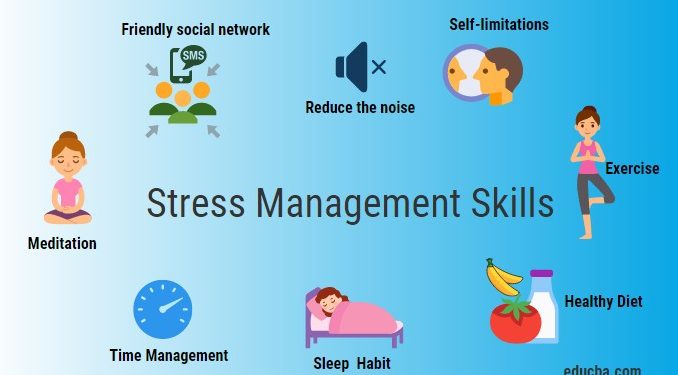
In the relentless pace of modern life, stress has become an almost ubiquitous companion, subtly eroding our well-being and diminishing our capacity to thrive. While its origins can be multifaceted – stemming from professional pressures, personal challenges, or the constant hum of digital demands – the body’s response to stress is often a primal “fight or flight” reaction, preparing us for physical exertion. Yet, in contemporary society, this physical preparation often goes unutilized, leaving us with a buildup of stress hormones and tension that can manifest as anxiety, irritability, and chronic fatigue. Fortunately, one of the most accessible, potent, and scientifically validated antidotes to stress lies in a fundamental human activity: exercise. Understanding how regular physical activity can be strategically employed to manage stress effectively is a vital insight for anyone seeking a more balanced and resilient existence.
At its core, exercise serves as a powerful **physiological release valve** for stress. When we encounter a stressful situation, our bodies release a cascade of hormones, including cortisol and adrenaline, designed to prime us for immediate action. In our modern context, this “action” rarely involves running from a predator; instead, the hormones linger, contributing to feelings of tension and agitation. Physical activity provides a healthy outlet for this physiological response. Engaging in exercise, whether it’s a brisk walk, a vigorous run, or a demanding weightlifting session, effectively “uses up” these stress hormones, allowing the body’s systems to return to a more relaxed state. It’s akin to completing the “flight” part of the “fight or flight” response, signaling to the brain that the danger has passed and it’s safe to calm down.
Beyond simply burning off stress hormones, exercise also triggers the release of **endorphins, the body’s natural mood elevators**. These neurochemicals interact with receptors in the brain to produce feelings of pleasure and well-being, often leading to the phenomenon known as “runner’s high” or a general sense of euphoria after a good workout. This natural antidepressant and anxiolytic effect can significantly improve mood, reduce feelings of anxiety, and provide a much-needed mental break from daily stressors. For instance, after a particularly challenging day at the office, a 30-minute swim or cycle can provide a profound shift in perspective, transforming irritation into a sense of calm accomplishment. This chemical reward system is a powerful motivator for consistent exercise and a key contributor to its stress-reducing properties.
Furthermore, exercise offers a crucial **mental diversion and opportunity for mindfulness**. When engaged in physical activity, especially repetitive or rhythmic movements, your mind often shifts focus away from nagging worries and stressful thoughts. Whether it’s concentrating on your breathing during a run, coordinating movements in a yoga class, or focusing on technique during weight training, exercise provides a healthy distraction. This temporary mental escape allows your brain to disengage from rumination, offering a much-needed break from the stress cycle. For many, exercise becomes a form of “moving meditation,” where the focus on physical sensation brings them into the present moment, much like traditional mindfulness practices. This mental break can lead to renewed clarity and a calmer perspective upon returning to the challenges of the day.
The discipline of a regular exercise routine also contributes significantly to **improved self-esteem and a greater sense of control**. Setting fitness goals and achieving them, however small, fosters a sense of accomplishment and competence. This mastery over one’s body and habits can translate into increased confidence in other areas of life, including managing professional and personal pressures. The act of proactively carving out time for exercise, despite a busy schedule, is also a powerful act of self-care. It signals to your mind and body that your well-being is a priority, subtly reinforcing a sense of control over your life, which is often eroded by chronic stress. This empowerment can be a robust psychological buffer against stressors.
Finally, regular physical activity profoundly impacts **sleep quality**, which is intrinsically linked to stress management. Stress often disrupts sleep, creating a vicious cycle where lack of sleep exacerbates stress, and heightened stress further impairs sleep. Exercise, particularly when done consistently and at appropriate times (avoiding intense workouts too close to bedtime), can promote deeper, more restorative sleep. Improved sleep allows the body and mind to repair and rejuvenate more effectively, enhancing emotional regulation, cognitive function, and overall resilience to daily stressors. A well-rested individual is inherently better equipped to handle pressure and maintain a positive outlook.
In conclusion, exercise is far more than just a means to physical fitness; it is a dynamic and essential tool for navigating the complexities of modern stress. By acting as a physiological release for stress hormones, stimulating mood-boosting endorphins, providing a crucial mental diversion, fostering self-efficacy, and improving sleep quality, regular physical activity offers a holistic and powerful antidote to the pressures of daily life. Incorporating movement into your routine is not just an investment in your physical health; it is a strategic decision for greater mental clarity, emotional resilience, and a sustained capacity to thrive in an ever-demanding world.